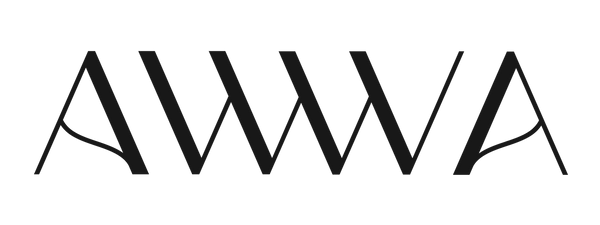The Future of Period Care
Creating a more sustainable, more beautiful future

AWWA is a period care brand that deeply reflects the relationship and connections between oneself, our environment, and planet. Our products help people all around the globe to manage their monthly cycles with confidence and connection without the negative impact associated with single use period products.
AWWA lives and breathes inclusivity for all who menstruate or experience minor bladder weakness. We are rooted by indigenous traditions that celebrate ikura (Māori translation for period) and aim to reconnect our growing community to traditional wisdom and practices that are equally relevant in today’s world.
AWWA’s purpose and why we exist is:
- To do our part to eradicate period poverty
- To have a net positive impact on our environment
- To change the narrative to ensure positive emotions about periods

Single use period products are made with plastic, meaning they can take up to 500 years to break down in our landfills.
As of the end of financial year 2025, together with our customers, AWWA has prevented 74,084,400 single use period products from ending up in landfills and waterways in New Zealand and around the world. This number continues to grow every day with new customers making the decision to move to a more sustainable period product.
Made with care. Care for you, care for the earth
From the natural, organic and recycled fabrics we use, our toxic-free processes to the ethical makers and our carbon footprint. We aim to live by our social & environmental mission:
You can read all about our global impact in our Impact Reports:
FY24 SUSTAINABILITY GOALS REVIEW
View past reports:
AWWA FY24 SUSTAINABILITY GOALS
AWWA FY23 SUSTAINABILITY GOALS REVIEW
B CORP CERTIFIED
We are proud to be B Corp Certified - this certification measures a company’s entire social and environmental impact.
Our B Corp certification demonstrates that we are meeting high standards of verified performance, accountability, and transparency on factors from employee benefits and charitable giving to supply chain practices and input materials
Based on the B Impact assessment, AWWA earned an overall score of 93.2. The median score for ordinary businesses who complete the assessment is currently 50.9. You can view our B Corp profile here.
TRACEABLE SUPPLY CHAIN
We use a mix of ethical suppliers and have full transparency across our supply chain from our cotton growers to recycled nylon suppliers, all the processes in between including ginning, spinning and dyeing, through to our cut, make & sew teams. Our traceable supply chain can be viewed here.
BUSINESS OPERATIONS
Sustainability is incredibly important to us. Yes, the period proof underwear we make is a better choice than pads and tampons for the environment but we appreciate that our day to day business operations can also have an impact on the environment through the output of carbon emissions.
We spent years measuring and reducing the carbon footprint of our business operations and in 2024 managed to cut our business emissions in half!
Today more than ever, we are becoming increasingly aware of how we have reached a point where our human footprint is affecting the earth. We are presently at a tipping point; what we do in the next 50 years will shape what the next 10,000 years looks like, therefore it is crucial to understand where we are right now. We know that to keep temperature rise below 1.5C within this century we need to reach net-zero carbon emissions by 2050.
Globally we are in a transition to a low carbon economy, with rapidly growing demand for climate solutions that deliver sustainable land management outcomes. As a business, we feel great responsibility to ensure that not only are we producing a sustainable product but that the processes and business operations we engage in equally have a positive impact on our environment.
OUR ONGOING COMMITMENT TO CARBON REDUCTION
In an ideal world, we would aim to stop emitting greenhouse gases (GHG) altogether. However, in reality this is impossible for almost all businesses. We are committed to undertaking actions to reduce our operational carbon emissions, and continue to work towards a carbon reduction plan with three key focus areas:
- Upstream Freight - Better planning to enable all inwards freight to come via sea rather than air.
- Fuel and Energy related emissions - A shift to sea over air freight will aid in the reduction of Well to Tank (WTT) emissions.
- Mobile combustion - Upgrade company fleet to hybrid or electrical models, or more fuel efficient than present vehicles.

